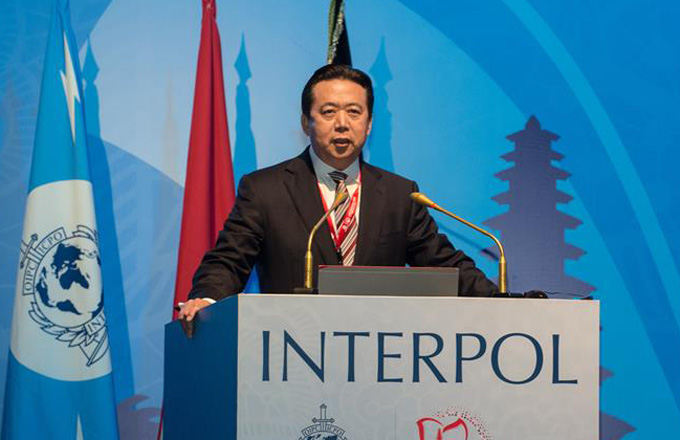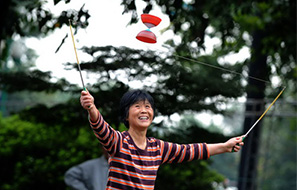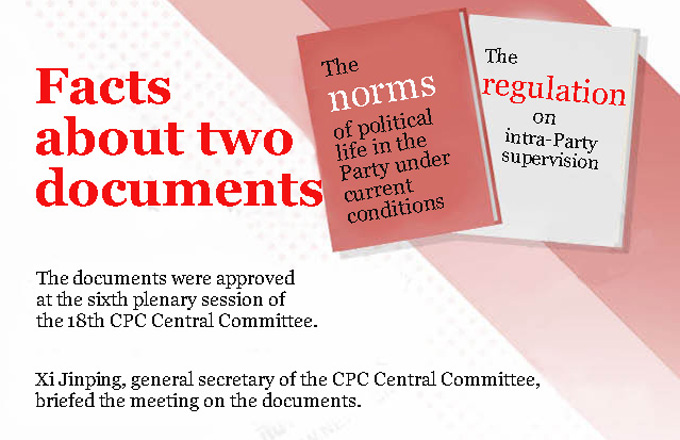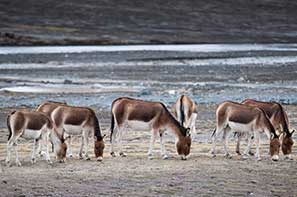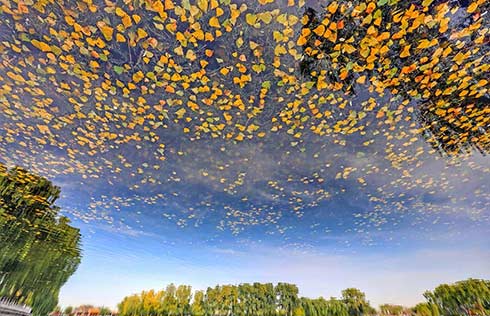Shanghai surprise stumps foreign residents
![Shanghai is a hot spot for expats, but poor air quality may soon drive some of them away. [ZHOU DONGCHAO / FOR CHINA DAILY] Shanghai surprise stumps foreign residents](../../images/attachement/jpg/site1/20130207/00221917dead127d3f231a.jpg) |
|
Shanghai is a hot spot for expats, but poor air quality may soon drive some of them away. [ZHOU DONGCHAO / FOR CHINA DAILY] |
Shanghai has the largest expat population on the Chinese mainland. Government statistics show that approximately 173,000 called the city home at the end of 2012, an increase of almost 7 percent on the previous year.
Human resource companies and expat managers indicate that the figure will continue to grow, despite some environmental differences such as variations in air quality that potential workers should prepare for, compared with living in their home cities.
David King, managing partner at the consultancy Concise, said he doesn't believe pollution will turn away any foreign workers "that would be worth hiring in the first place".
"I think I'm a glass half-full guy, rather than glass half-empty. If you come to Shanghai, you're here to seize the opportunity that China can give", said British-born King, who has been based in Shanghai for 10 years.
"People are more tolerant about some of the negatives in the face of the positives. If you're the type of expat who doesn't like the challenges here, then maybe you're better off not getting on the plane and living where you were born.
"China rewards those who take a leap, accept the pain that can come with the game. I really have very little time for people who complain about it. What China has achieved over the past 20 years and what it will achieve in the next 20 is remarkable.
"I'm pretty sure the air was (ordinary) in London decades ago as well. People didn't complain, they got on with it. People here should do the same."
King suggested that, unlike 10 years ago, Shanghai is now on the list of cities where multinationals may rotate staff through, in a similar way to locations such as Hong Kong.
He said that could lead to a different level of work maturity. Some may be less tolerant or expect compensation for the change from conditions they're used to, compared with a worker who moved for their own reasons, rather than a company's.
"As an employer, anyone who even contemplated asking for that (compensation for poor air quality) would be shown the door."
However, a human resources employee at the Swiss pharmaceutical company Novartis, who asked not to be named, told China Daily that air pollution in Beijing and Shanghai had affected foreign employees' decisions about whether to join the company's operations in Shanghai.
"That concern is now said to be reflected in a hardship allowance", said the employee.
The specialist recruitment firm, Hays PLC, said it has not noted that potential recruits are flagging air quality as a major reason to think twice about moving to Shanghai.
"We are not sure that one factor alone would affect candidate attraction, as there are various factors involved in a decision to move for a job," said Hays China regional director Simon Lance.
"For people with the mobility and the choice to change work locations, air pollution could be one of the many factors to take into consideration.
"However, we believe the key considerations include things such as employer brand, career development opportunities, salary and benefits, and relocations issues for a candidate's family."
An individual working in Shanghai by choice is one thing, but priorities can change when you have a family, according to some mothers who take their children to a playgroup in the Pudong district.
Patty Spengler, the mother of children aged 1 and 2, said her family will leave Shanghai in March, after her husband declined the opportunity to extend his work contract.
"I don't want to stay too long because of the pollution. Now I don't take the children out anymore if the Air Quality Index reading is too high. I'll still go out, but only if I have to," said US-born Spengler.
She said her husband's employer GE Co includes a hardship allowance for health and air-quality concerns in his salary, "otherwise you wouldn't get it for coming to Shanghai - it's a city that is very easy to live in. We wouldn't get it if we lived in Singapore, for example".
When Australian Victoria Chen first came to Shanghai five years ago, she was pleased with the city's environment.
"But this winter's air pollution has been the worst in five years. We bought air purifiers for each of our rooms at home and I stopped working out," said the keen jogger.
Chen said she has had to quit a marathon she signed up for because it was too hard to train, given the poor air quality.
"I've received e-mails from my daughter's (international) primary school five or six times since Christmas, saying the air quality had reached 'red-level' and outdoor activities were banned. You don't expect this as a parent. We have to go back home soon," she said.





